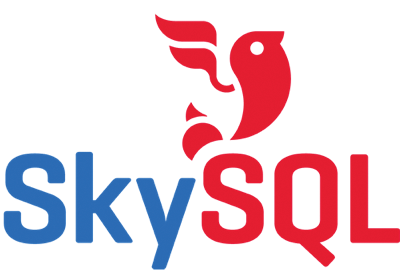
Dispatches from the world of IT
News
Titan Tops TOP500 List
The newly upgraded Titan supercomputer has replaced Lawrence Livermore National Laboratory's Sequoia system at the No. 1 spot on the TOP500 list of the world's fastest supercomputers.
According to the most recent edition of the TOP500 list, Titan achieved 17.59 PFLOPS (quadrillions of calculations per second) on the Linpack benchmark. Titan is a Cray XK7 system installed at Oak Ridge National Laboratory, and it features 560,640 processors, including 261,632 NVidia K20x accelerator cores.
Sequoia, an IBM BlueGene/Q system, now occupies the No. 2 spot on the list, with 16.32 PFLOPS on the Linpack benchmark. Fujitsu's K computer installed at the RIKEN Advanced Institute for Computational Science (AICS) in Japan is in third place. Mira, a BlueGene/Q system installed at Argonne National Laboratory occupies the No. 4 spot, and at No. 5 is JUQUEEN, a BlueGene/Q system at the Forschungszentrum Juelich in Germany. According to the list, JUQUEEN is now the most powerful system in Europe.
The TOP500 list also provides insight into which technologies are leading the way in the world of supercomputing. According to the website, systems with multicore processors dominate the list, with 84.6 percent using processors with six or more cores and 46.2 percent using eight or more cores. InfiniBand technology now provides interconnects on 226 systems out of the total 500 – up from 209 on the previous list. Gigabit Ethernet interconnects are found on 188 systems – down from 207 previously.
The TOP500 list is compiled twice a year by Hans Meuer of the University of Mannheim, Germany; Erich Strohmaier and Horst Simon of Lawrence Berkeley National Laboratory; and Jack Dongarra of the University of Tennessee, Knoxville. You can read more at: http://www.top500.org/.
Top 35 Mitigation Strategies Released
Australia's Defence Signals Directorate (DSD) has released a list of its Top 35 Mitigation Strategies to combat cyberattacks.
Additionally, the DSD website states that at least 85 percent of the targeted cyber intrusions could be prevented by following just the first four strategies, which are:
- Use application whitelisting to help prevent malicious software and other unapproved programs from running.
- Patch applications such as PDF readers, Microsoft Office, Java, Flash Player, and web browsers.
- Patch operating system vulnerabilities.
- Minimize the number of users with administrative privileges.
The 35 mitigation strategies on the list are ranked in order of overall effectiveness, and according to the website, "The list is informed by DSD's experience in operational cyber security, including responding to serious cyber incidents and performing vulnerability assessments and penetration testing … ."
You can find the complete list of strategies, along with other information, at: http://dsd.gov.au/infosec/top35mitigationstrategies.htm.
SkySQL Offers New Cloud Training
SkySQL, a provider of open source database solutions, has announced a new training course, called "MySQL Database for the Cloud." According to the announcement, the instructor-led, three-day classes will be available in early 2013 in five US and European cities to help DBAs and developers move MySQL database migrations into the cloud.
The announcement says the class curriculum will cover the pros and cons of different cloud providers, as well as MySQL-specific use cases. Attendees will learn how to choose a hosting solution or cloud provider to suit their needs, migrate existing apps to the cloud, and design new apps. The course also covers how to implement, deploy, monitor, and maintain a cloud environment and how to configure your MySQL database to best utilize the cloud environment.
Basic DBA knowledge is required to attend; you can find more details along with course schedules at: http://www.skysql.com/services/training/courses/mysql-cloud.

23 Percent of Browsers Outdated
Twenty-three percent of surveyed users have outdated versions of their browsers, according to a recent report issued by Kaspersky Lab. The report, called "Global Web Browser Usage and Security Trends," analyzed browser usage trends from among 10 million randomly selected Kaspersky Lab customers around the world.
Kaspersky Lab's report stated that "the number of users utilizing older or critically outdated browsers is very high. A 23% share for older browsers and 8.5% for obsolete versions represents millions of users."
The report also mentioned other findings; specifically, it noted that Internet Explorer and Firefox are losing market share to Google Chrome. However, Internet Explorer is currently the most popular browser among the users surveyed (37.8% of users), followed by Google Chrome (36.5%), and Firefox (19.5%). Additionally, Kaspersky Lab reported that it takes about a month for most users to upgrade once a new browser version is released, whereas cybercriminals can exploit known browser vulnerabilities within hours.
The report strongly advocated keeping browser software up-to-date. It noted that web browsers are the most frequently used programs, and they offer straightforward update functionality that users should take advantage of.
You can find the complete report at: http://www.kaspersky.com/images/Kaspersky_Report_Browser_Usage_ENG_Final.pdf.

Penguin Announces Power Monitoring Tool
Penguin Computing has announced PowerInsight, a new product for monitoring server and desktop power consumption.
The PowerInsight device was designed by Penguin Computing in cooperation with Sandia National Laboratories. According to the product announcement, the compact PowerInsight device is small enough to fit a 3.5-inch drive tray, and it can measure power consumption for all subsystem components within a server.
Internally, the device consists of an ARM-based server, a custom carrier board, and various sensors and connectors for monitoring power within a system.
In the announcement, Penguin Computing states that the device can monitor CPU, memory, hard drives, GPU, and fans – with additional subsystem monitoring devices planned for the future.
"In many data centers power is the biggest facility challenge," said Phil Pokorny, CTO at Penguin Computing. The PowerInsight tool "allows researchers, programmers and system manufacturers to gain more insight into the power consumption of their systems and the implications of their design decisions," Pokorny said.
More information about the PowerInsight device is available from the Penguin Computing website. For additional details about PowerInsight, please visit http://www.penguincomputing.com.

DHS Seeks Security Experts
Cybersecurity experts are in high demand in both the private sector and in government agencies, according to a recent article in The Washington Post.
The article, which was written by Ellen Nakashima, says that the CIA, Department of Homeland Security (DHS), and the FBI are all recruiting people who can "write code, reverse engineer malware, and probe computer systems for vulnerabilities."
The DHS, in particular, has been steadily building its cybersecurity workforce over the past few years. According to the article, four years ago, the DHS employed 40 people in cyber and now has 400.
Additionally, the DHS plans to build a larger government cyber squad – in addition to the 1,500 cyber contractors who also work for the agency, the article said.
Department of Homeland Security Secretary Janet Napolitano is quoted in the article as saying "… if you want to be in an area where the national mission is absolutely key, where it's fast-developing, where you can be in on the ground floor on something of major significance to the public interest and use skills that you have developed in cyber, you need to come work with us, because that's exactly what we are doing every day."
You can read the complete article online at: http://tinyurl.com/btupj3o.

